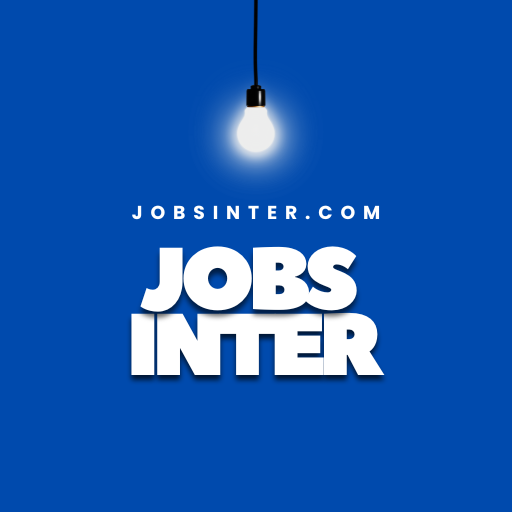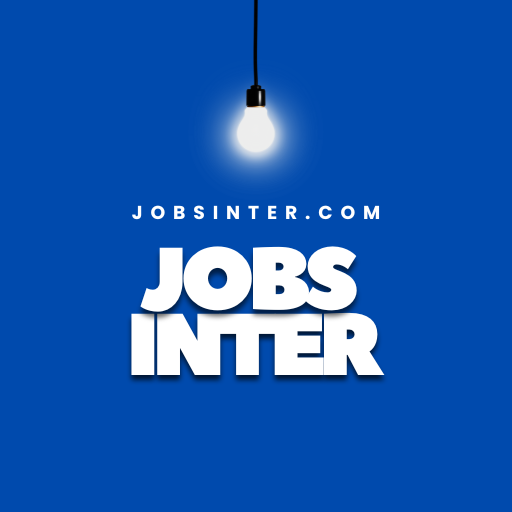The Future is Flexible: Top 100 Companies to Watch for Remote Jobs in 2025

The way we work has fundamentally shifted. What began as a necessary response to a global pandemic has evolved into a permanent,
The way we work has fundamentally shifted. What began as a necessary response to a global pandemic has evolved into a permanent, powerful feature of the modern workforce: remote work. As we look ahead to 2025, the demand for flexible, location-independent roles is not just a trend; it's a core expectation for top talent worldwide.
But with so many companies offering "remote" options, how do you find the ones that are truly committed, with robust cultures, strong benefits, and exciting career paths? We've done the research for you. This list isn't just about who is hiring remotely today; it's about the Top 100 Companies to Watch for Remote Jobs in 2025—the innovators, the established giants adapting to the new era, and the startups building the future of work from the ground up.
We've categorized them to help you find your perfect fit, whether you're in tech, marketing, healthcare, or customer service.
The Methodology Behind the List
This list was curated based on several key factors:
Consistent & High-Volume Hiring: Companies with a track record of posting a high number of remote roles.
Future-Focused Industries: Sectors poised for growth in 2025, like AI, cybersecurity, and digital health.
Culture & Benefits: Companies known for strong remote cultures, including wellness stipends, home office budgets, and virtual team-building.
Career Growth: Organizations that offer clear paths for advancement for remote employees.
Industry Recognition: Featured on "Best Places to Work" lists from sources like FlexJobs, Forbes, and Built In.
The Top 100 Companies to Watch for Remote Jobs in 2025
1. The Tech Titans & SaaS Powerhouses
These companies built the digital world and are now leading the charge in distributed work.
GitLab: The world's largest all-remote company; the blueprint for async work.
Shopify: A "digital by default" company with a massive, distributed workforce.
HubSpot: A leader in inbound marketing with a strong "Hybrid @ HubSpot" policy.
Automattic (WordPress.com): Pioneers of distributed work with a globally scattered team.
Dropbox: Embraced a "Virtual First" model, focusing on remote work as the primary experience.
Okta: Identity management is crucial, and so is their flexible work approach.
Atlassian: Offers "Team Anywhere," allowing employees to work across the globe.
Salesforce: A champion of the "Success from Anywhere" model.
Microsoft: Offers extensive remote options, especially in engineering and sales.
Meta (Facebook): Committed to remote work for many roles, with a focus on VR metaverse collaboration.
Google: While hybrid, it has a significant number of approved remote roles and continues to expand its remote-friendly policies.
Amazon (AWS, Alexa, etc.): Many tech and corporate roles are remote-eligible.
Intuit: Offers a hybrid model with many teams operating remotely.
Adobe: Known for flexibility and a strong digital-first culture.
SAP: A global software giant with a mature remote work program.
ServiceNow: Cloud workflows for everyone, including their own remote employees.
Snowflake: The data cloud company is also a cloud-based workplace.
Datadog: Monitoring and security for cloud applications, with a distributed team.
MongoDB: Empowers innovators to work from anywhere, including their own staff.
Twilio: A communications API platform built by a flexible, remote-inclusive workforce.
Zapier: Fully remote from day one, a master of async communication and automation.
Airbnb: Announced a "Live and Work Anywhere" policy for employees.
Coinbase: A crypto leader with a "remote-first" philosophy.
Block (formerly Square): Embraces a decentralized, flexible work model.
Cloudflare: A web infrastructure company with a globally distributed team.
2. The FinTech & Financial Services Innovators
Money is digital, and so are the jobs managing, moving, and securing it.
Stripe: A payments giant with a strong remote engineering and product culture.
PayPal: A long-time enabler of remote commerce, now a provider of remote jobs.
Robinhood: Democratizing finance with a distributed team.
Chime: A neobank built for mobile, with a workforce to match.
Plaid: The fintech infrastructure backbone, powered by a remote-friendly team.
Brex: Corporate cards and finance for startups, built by a remote-first company.
Deel: The platform for global hiring and payroll; they literally practice what they preach.
Remote.com: Similar to Deel, a fully remote company building tools for remote work.
Coinbase: (Also in Tech) A major player in both crypto and remote work.
SoFi: A digital personal finance company with many remote roles.
Intuit (QuickBooks, TurboTax): (Also in Tech) A major employer in the fintech/accounting space.
American Express: Many customer service and corporate roles are permanently remote.
Fidelity Investments: A legacy financial firm that has fully embraced remote work for thousands of roles.
3. The Healthcare & Biotech Vanguard
Telehealth is booming, and the supporting infrastructure is increasingly remote.
Teladoc Health: The leader in virtual healthcare delivery.
Amwell: A major platform for telehealth services.
Hims & Hers: A direct-to-consumer telemedicine platform.
Ro: A centralized healthcare platform with a distributed team.
Modern Health: A mental health platform for employers, operating remotely.
Headspace Health: Meditation and mental wellness, supported by a remote workforce.
Labcorp: Many data, IT, and client service roles are remote.
Pfizer: The pharmaceutical giant offers numerous remote positions in clinical research, medical affairs, and sales.
Johnson & Johnson: A wide array of remote opportunities in medtech, pharma, and corporate functions.
4. The Marketing, Media & Creative Hubs
Storytelling and brand-building don't require a physical office.
Zapier: (Also in Tech) A master of content and marketing in a remote setting.
HubSpot: (Also in Tech) The inbound marketing leader.
Buffer: A fully transparent, fully remote social media company.
ConvertKit: Built by and for online creators, with a remote team.
GitHub (Microsoft): The home for developers, with a strong remote culture.
Stack Overflow: The Q&A site for developers, with a distributed team.
Automattic (WordPress.com): (Also in Tech) A massive employer of writers, designers, and developers.
Webflow: A visual web development platform with a remote-first team.
Figma: A collaborative design tool built by a hybrid-remote company.
Canva: The design platform offers flexibility and remote options.
Spotify: The audio streaming giant has a "Work From Anywhere" program.
Netflix: While famously selective, it offers remote opportunities in various departments.
The New York Times: Embraces remote work for digital roles in engineering, product, and marketing.
5. The Customer Success & Support Champions
The front lines of business have moved online, and so have the support teams.
Zendesk: A customer service software company that practices flexible work.
Intercom: A customer messaging platform with a distributed workforce.
Shopify: (Also in Tech) Massive, remote-friendly support teams.
Airbnb: (Also in Tech) Customer support is a key remote function.
Dropbox: (Also in Tech) Virtual-first customer support.
GitLab: (Also in Tech) All-remote, including its extensive support organization.
Twilio: (Also in Tech) Support for a developer-centric product, delivered remotely.
HubSpot: (Also in Tech) Renowned for its inbound customer support.
6. The Professional Services & Consultancy Networks
Advice and strategy can be delivered from anywhere.
Deloitte: The consulting giant has made flexibility a core part of its talent strategy.
PwC (PricewaterhouseCoopers): Embraced a "virtual first" future for many of its service lines.
Accenture: A global professional services company with extensive remote options.
Bain & Company: Offers flexible work arrangements for consultants and professional staff.
Boston Consulting Group (BCG): Has adapted to offer more remote and flexible project work.
7. The EdTech & Learning Pioneers
Education is being reshaped, and the companies leading the change are built for remote work.
Coursera: Online learning for everyone, from a remote-friendly company.
Khan Academy: A non-profit on a mission, powered by a distributed team.
Duolingo: The language-learning app has a flexible, hybrid-remote culture.
Chegg: A student-first connected learning platform with remote roles.
2U: Partners with universities to create online degree programs.
8. The Startups & Scale-Ups to Keep on Your Radar
These smaller, high-growth companies are building their cultures around flexibility from day one.
Notion: The all-in-one workspace tool, with a growing remote team.
Airtable: A flexible spreadsheet-database hybrid, built by a flexible workforce.
Figma: (Also in Creative) A design collaboration tool with a hybrid model.
Brex: (Also in FinTech) Remote-first corporate finance.
Deel: (Also in FinTech) The future of global HR, built remotely.
Remote.com: (Also in FinTech) A direct competitor to Deel, also fully remote.
Loom: Async video messaging, perfect for a remote world.
Miro: The online collaborative whiteboard, essential for distributed teams.
ClickUp: A productivity platform built by a team that uses its own product remotely.
Calendly: Scheduling software that simplifies life for remote workers.
Grammarly: The AI writing assistant has a distributed, remote-first team.
Discord: The communication platform for communities, with a flexible work model.
Figma: (Also in Creative) A design collaboration tool with a hybrid model.
Patreon: A platform for creators, supported by a remote-enabled team.
Substack: Email newsletters and a remote-friendly workplace.
Superhuman: The fast email client for a fast-moving, distributed workforce.
Gusto: Payroll and HR for small businesses, with a people-first remote culture.
Rippling: An all-in-one HR and IT platform, with a flexible work policy.
Attentive: Personalized text messaging marketing, with remote roles.
Postman: The API platform for developers, with a distributed team.
DataDog: (Also in Tech) Cloud monitoring with a cloud-based team.
Plaid: (Also in FinTech) The infrastructure for fintech, built remotely.
How to Land a Remote Job at These Companies in 2025
Seeing the list is the first step. Securing the job is the next. Here’s how to position yourself for success:
Polish Your Digital Presence: Your LinkedIn profile and personal portfolio/website are your new office front door. Ensure they are impeccable and highlight remote-friendly skills like communication, self-motivation, and project management.
Highlight Async Skills: In your resume and interviews, emphasize experience with tools like Slack, Asana, Notion, Loom, and Zoom. More importantly, showcase your ability to communicate clearly and work independently.
Prepare for Virtual Interviews: Test your tech, create a professional, clutter-free background, and practice answering behavioral questions focused on autonomy and time management (e.g., "Tell me about a time you managed a complex project with minimal supervision.").
Be Proactive & Ask Questions: Inquire about the company's remote culture. Ask about their onboarding process for remote employees, how they foster connection, and what their communication norms are. This shows you're serious about thriving in their environment.
The future of work is not a single location; it's an outcome. As we move into 2025, these 100 companies are leading the way in creating that future. By focusing your search here, you're not just finding a job—you're investing in a career that offers freedom, flexibility, and endless possibility.
Start your search today, and get ready to build your career from anywhere.



Write A Comment
No Comments